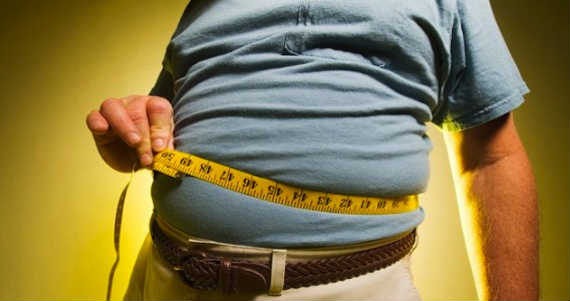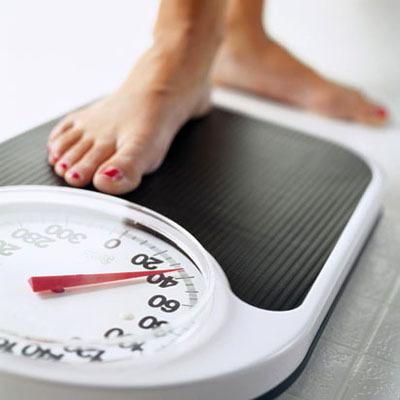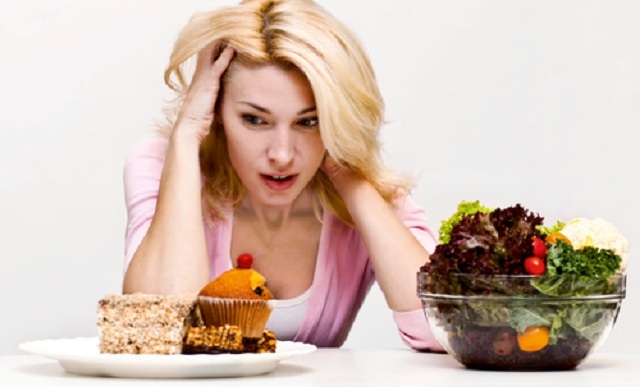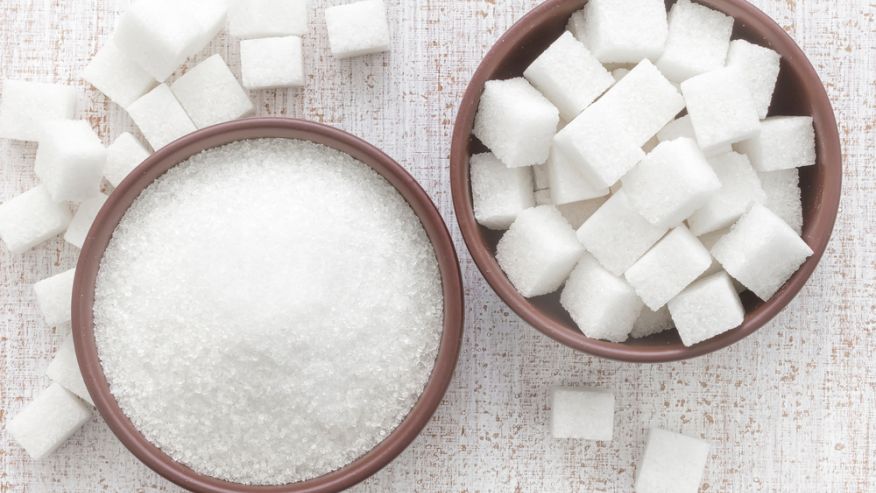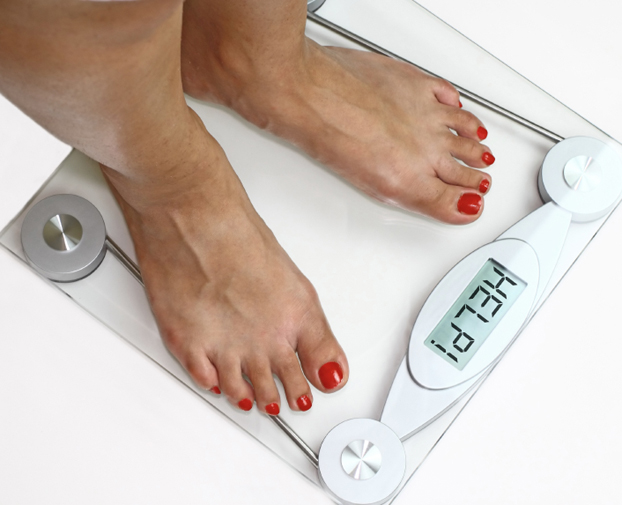
You are not eating more than usual, maybe you are consuming even less calories. You have not stopped exercising. Then why do you find yourself gaining weight?
About 5 years ago I started putting on weight after being slim my whole life. 115 – 120 lbs was my consistent, no effort required weight. The gain coincided with first year university. I gained up to about 130-135 before saying, enough, I have to change. I ate a bit healthier, dropped back to 115 in short order and felt good, maintained that for two years no issue. The last 2 or three months though, I’ve started putting weight on again. The funny thing is, my eating habits didn’t change – or if they did, I was eating less than before. Does anyone have experience with this?
This is Jess’s cry for help regarding unexplained weight gain. She then indicates that ‘there is a lot of new stress’ in her life.
Consuming less calories than usual?
Sometimes, consuming less calories than usual can cause weight gain. Strange but true. This is mainly because your body considers not getting sufficient food (nutrients) as ‘famine’ and starts stocking up in the form of fat, especially in the belly region, for later use as energy. Well, after some time you get back to your usual portions of diet, the ‘stocked’ fat is not used and you gain weight.
Pregnant and eating for two?
Your attitude during pregnancy can also cause you to gain weight that might prove difficult to shed. Overweight pregnant women who ‘eat for two’ are likely to experience excessive weight gain, according to researchers from Penn State College of Medicine. Normal weight pregnant women need only 300 extra calories per day and 150 minutes of moderate intensity exercise per week. The researchers found women who gained weight ate more unhealthy food, that too, as a result of craving, and exercised less than usual when pregnant.
There can also be a number of underlying health issues that is causing you to gain weight.
Food sensitivity / food intolerance
Do you think you are eating the ‘right’ foods, but still seem to gain weight? Your favourite food may be the culprit. Although you may have intolerance to any food, scientists have found that 40 percent of offenders are milk or dairy products and 25 percent is wheat. Eggs, yeast and nuts follow closely.
Food sensitivities can arise when you eat the same foods with too little variety. This causes your body to become sensitized to that particular food/s. Food sensitivities involve immune system antibodies IgG (not IgE that cause true food allergies) that create a reaction that raises insulin and cortisol, both of which make you better at storing fat, especially around the midsection. This immune reaction also makes you crave the very foods that are hurting you, and the vicious cycle goes on, and you gain weight.
Hypothyroidism
Hypothyroidism is a disorder in which the thyroid gland doesn’t make enough of its hormone and is one of the commonest reasons for unexplained weight gain. Other symptoms include dry skin, low energy, and constipation.
There is a complex relationship between thyroid hormone and body metabolism. Metabolism is the amount of oxygen used by the body over a specific amount of time. When the body is at rest, the measurement of metabolism is the basal metabolic rate (BMR). Thyroid hormone regulates metabolism by helping the body use energy, stay warm, and keep the brain, heart and other organs working properly.
When the thyroid hormone is present in low levels, the BMR also decreases, causing your body to excessively accumulate salt and water, leading to weight gain. This is just one of the ways thyroid hormone causes weight gain. Actually, there are many other hormones, proteins, and other chemicals that control energy expenditure, food intake, and body weight and all these substances interact on brain centers in different ways to increase body weight.
Cushing’s syndrome
Cushing’s syndrome is a group of signs and symptoms that involves exposure to high levels of hormone cortisol for a long time. The hallmark signs of the syndrome are a fatty hump between your shoulders and a rounded face caused by weight gain and fatty tissue deposits on the face (moon face) and between the shoulders (like a buffalo hump), and pink or purple stretch marks on your skin.
Slow healing of cuts and infection, acne, a fragile skin that bruises easily, and irregular periods in women are other symptoms of the syndrome.
Cortisol is a hormone produced by the adrenal glands and it has a number of functions –
- It helps regulate your blood pressure and keeps the cardiovascular system working properly.
- It helps your body respond to stress.
- It metabolizes proteins, carbohydrates, and fats into fast usable energy.
- It also stimulates insulin release and maintains blood sugar levels.
- The last two functions are possibly the reason for increase in appetite, as more the cortisol, faster the metabolic rate, and greater your appetite that consequently makes you gain weight.
Stress
Eating habits can be difficult to maintain when you are under stress. Excess cortisol is secreted during times of physical or psychological stress. Actually, cortisol has been nicknamed ‘stress hormone’. So, what is the link between stress, cortisol and appetite? Studies have shown that cortisol directly influences food consumption by binding to receptors in the brain region called hypothalamus. This can stimulate an individual to eat food that is high in fat and sugar. Cortisol also increases the levels of CRH (corticotrophin releasing hormone) and neuropeptide-Y, and decreases the levels of leptin, all of which are released during stress and also known to stimulate appetite.
The same reasoning applies to anxiety disorders and depression.
Cortisol concentrations are controlled by specific enzyme that converts inactive cortisone into active cortisol. Scientists have found that more of this enzyme is present in the middle region than anywhere else in the body. Thus, higher the enzyme, greater the cortisol levels in the tissues. That’s why you tend to put on more fat in the belly region.
Lack of sleep
Your weight gain could be the result of sleep deprivation, that is, if you don’t get enough sleep at night, say 7 – 8 hours a day.
A study published in the American Journal of Epidemiology indicated that lack of sleep could affect metabolism, which in turn causes weight gain. In the long-term study, women who slept five hours or less a night gained an average of about 2.5 lbs more than those who slept seven hours.
Sleep deprivation decreases leptin levels, a hormone responsible for regulating appetite and metabolism. On the other hand, it increases hormone ghrelin levels that tend to stimulate appetite.
Polycystic Ovary Syndrome (PCOS)
PCOS is a disease of the endocrine system where the ovaries don’t make enough hormones for the eggs to mature fully. Instead the ovaries develop many fluid-filled sacs called cysts because of high levels of male hormone androgens that are found in women with PCOS.
PCOS makes it more difficult for the body to use the hormone insulin resulting in insulin resistance. This causes insulin and sugar to build up in the bloodstream. High insulin levels increase the production of male hormones called androgens. And androgen is known to trigger weight gain, especially abdominal obesity.
Cancer and cancer treatment
Women with cancers like breast cancer and ovarian cancer undergoing treatment tend to gain weight which is difficult to shed.
This weight gain may be because of the enzyme lipoprotein lipase (LPL), which is controlled by insulin. LPL is attached to the surface of the fat cells. The enzyme pulls out fat from the blood stream and passes it on to the cells making them fatter. Estrogen suppresses LPL activity on fat cells. But breast cancer treatment, ovarian cancer treatment viz. chemo and steroids, dramatically decreases estrogen levels. This causes the weight gain.
Apart from these medical conditions, the following factors too could make you gain weight.
Menopause: Estrogen helps regulate body weight. Low estrogen levels means you will eat more and exercise less – a perfect equation for weight gain. Estrogen levels reduce drastically with menopause. Lack of estrogen also causes insulin resistance which increases fat storage and induces weight gain.
Medications: Tricyclic antidepressants, antihistamines (cetirizine, Allegra), antipsychotics, beta-blockers (high blood pressure drugs), oral corticosteroids, oral medication for type2 diabetes, anti-seizure drugs for epilepsy, bipolar disorder and migraine prevention.
Family history: If your parents are overweight, you are more likely to carry the genes for obesity. But health practitioners believe that weight gain can be countered by modifying your faulty lifestyle choices.
Basically, it is the hormonal imbalance that is causing your weight gain – excess cortisol levels, increased insulin release, low levels of leptin, low estrogen levels, high androgen levels, and so on. So, see an endocrinologist first, who can then refer you to the concerned specialist if required.
Source: the health site



